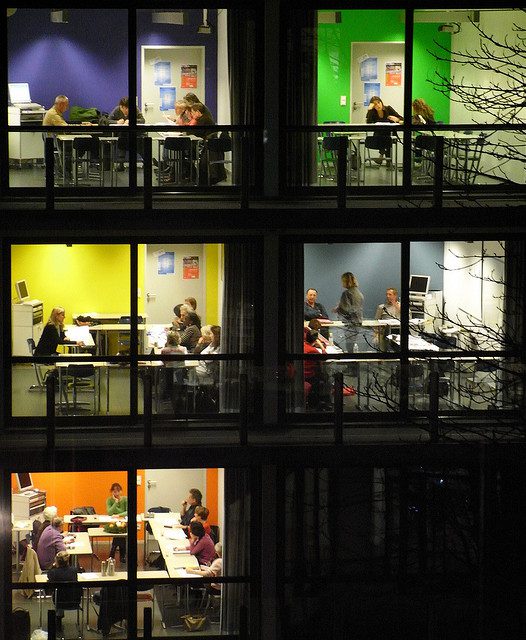 Our friends at the Washington Institute for Faith, Vocation, and Culture recently posted some thoughtful reflections from Madison Perry on what believing in the resurrection means–and how it makes a difference as we struggle with the everyday issues of work and life:
Our friends at the Washington Institute for Faith, Vocation, and Culture recently posted some thoughtful reflections from Madison Perry on what believing in the resurrection means–and how it makes a difference as we struggle with the everyday issues of work and life:
An eye for beauty enhances our appreciation of life’s tragedy, and gives the tragic a new place to make sense. Christ’s resurrection is a fact and gives us a way to realistically embrace the beauty and the hard realities of life.
Resurrection frees us to reinvent the routines and tasks our toils bestow on us – to break through the artifice to get to the art. We know that our tasks do not define us, and that our suffering is not the final word, so we have the freedom to get to the art of what we are doing.
But how, Perry asks, can we put this into practice in what often seems like a world of drudgery? One example is Perry’s brother, who tries to do just that managing a Chick-Fil-A:
Here are some artifices of the world he inhabits: lemon cutting, chicken breading, toilet washing and credit card swiping. But if you asked him what his top priority is as a manager, it is to love each person whose car graces his parking lot. He has created new routines for hundreds of aspects of his restaurant to celebrate his customers. For instance, odds are good if you come by for a sandwich, he will personally stand outside of his drive-through facility and greet your vehicle; he has mastered the routines of the restaurant so that he has that freedom.
Perry also reminds us that Jesus was not above or immune to everyday work:
Jesus’ first work post-resurrection appears to have been gardening (he was mistaken for a gardener at least). Did he sweat? Did he plant something, or was he pulling up nettle weeds? Later on, Jesus prepares breakfast for the disciples who had betrayed him – breakfast on the beach. I like to think about Jesus making a fire with flint, trying his best to do it well, but not too worried.
Perry’s conclusion is that remembering the promise of resurrection will help us too, even in the midst of meaninglessness:
When we talk about vocation and occupation, there are a few hard facts of life that we live – part of work is toil, and during the Great Recession good toil is hard to find. But resurrection – the innocence at the far end of experience – transfigures work. The work we do is important, but it is not all-important, because there is an added fact to our observable world: the Father resurrected Jesus at the far end of death.
How can remembering this bring meaning to your own life? What do you struggle with that Jesus needs to transform? Comment below–we’d love to hear from you; we’re all on this journey together.
Image: “Work” by Pierre Metivier, used under a Creative Commons 2.0 license.












